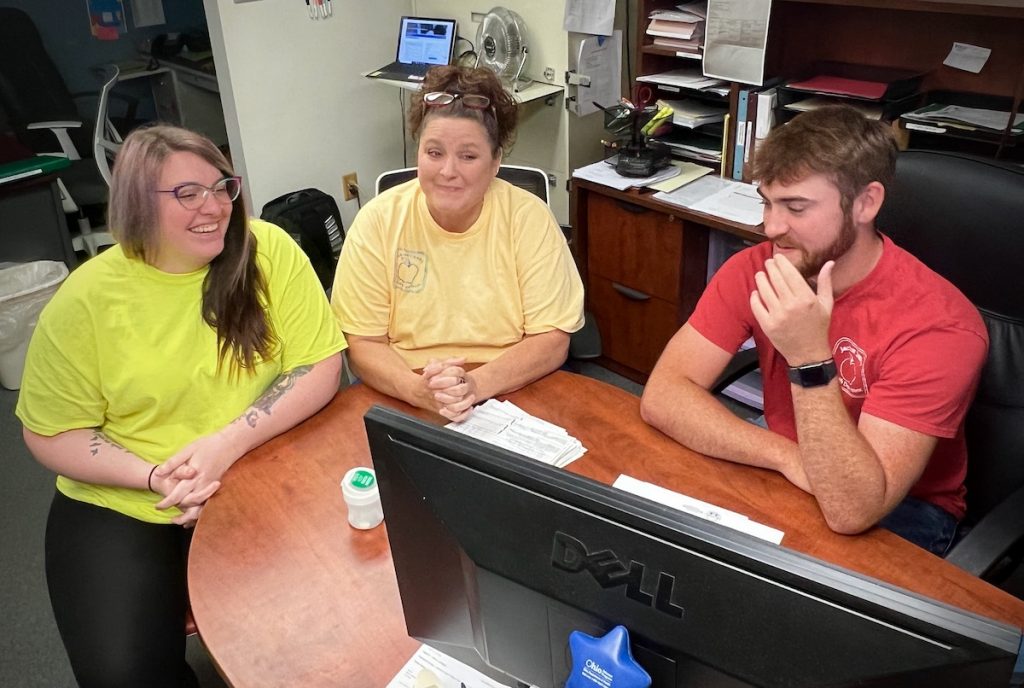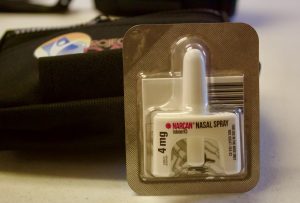A Jackson County family’s work to address substance misuse draws on personal experience
By: Reese Thompson
Posted on:
JACKSON, Ohio (WOUB) — Every week, Staci Mercer and her daughter hand out free naloxone kits to help save the lives of community members dealing with substance misuse.
For them, the work is deeply personal. Mercer’s son overdosed about 20 years ago, which was a big wakeup call for her family.
“When he overdosed and we about lost him, that really brought to light how serious his problem was,” said Kara Duhl, Mercer’s daughter.
Naloxone, an opioid-overdose reversal drug, is what saved her brother’s life. At the time of his overdose, it was only carried by paramedics.
Now, with the opioid crisis touching so many communities, many counties like Jackson are making naloxone more accessible.

The program provides needle exchanges and free doses of naloxone.
Mercer said if people want to do drugs, nothing will stop them.
“Overdoses happen more frequently, but it still does not stop people from using drugs,” she said.
In the past four years, Jackson County has gone from giving out four to eight kits to over 1,100 kits this past year.
Mercer said the wide distribution is essential to keep people from overdosing.
“Naloxone is a good thing and a life-saving drug,” she said.

“Every time you talk to them, you are planting a seed that they will grow and find their own recovery,” Duhl said.
She also said seeing positive progress in a patient’s recovery means the world to her.
“It makes me feel great,” Duhl said. “When I tell them we are cheering them on and when we haven’t seen that person this week we’ll be like, ‘Where are they at?’ and hear, ‘Well, they are in recovery.'”
Ethan Mercer, a public health specialist, said seeing how his mom has touched the lives of people struggling is an example of what their family is all about.
“People that tell her how good they’re doing or how they are changing their lives is really inspiring,” he said.

